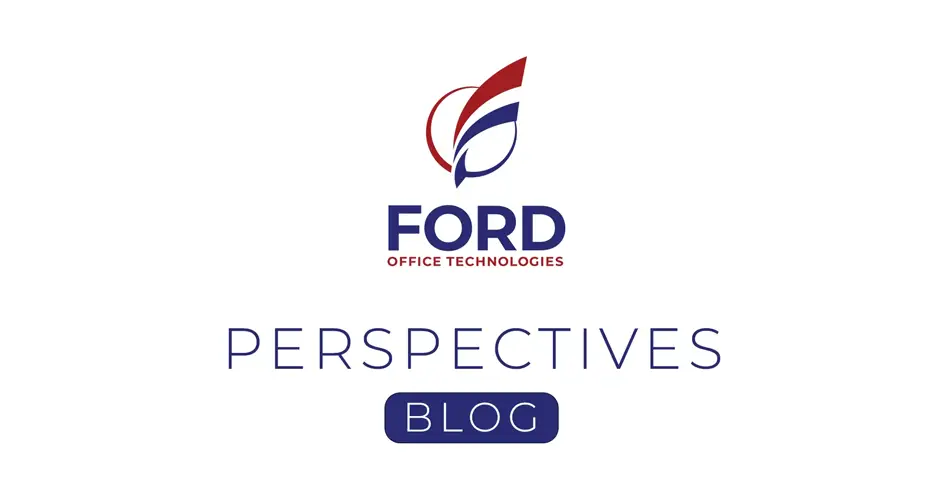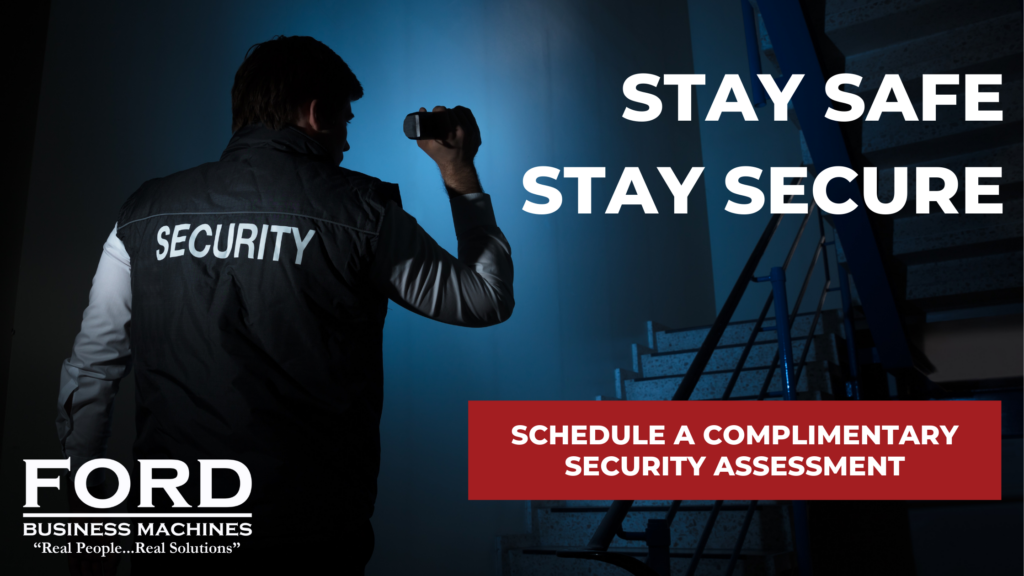8 MINUTE READ
Can My Printer Be Hacked? Avoid Printer Identity Theft
Printers and copier machines are a staple in any office setting. It’s one of the first things managers train employees to use when they come on board and out of all the machines in an office building, it tends to get the most foot traffic. But did you know that you need to take steps to avoid printer identity theft?
There are a lot of documents getting scanned through the office copier daily, but the average worker isn’t aware that their scan isn’t always gone when their copies are printed. Late-model copier machines create a digital image that gets saved to the copier’s hard drive when it prints. When that image is stored on the hard drive, it’s there to stay. This means that an average high-end office copier can have thousands upon thousands of image files saved to its hard drive. That includes any sensitive company documents or personal documents that employees have scanned!
SKIP THE LINE:
Copy with Care
Document Management: Keeping Your Information Safe
“It Won’t Happen to Me”
Copiers can be a treasure trove for any identity thief with some technical knowledge. Not all copiers have hard drives, so many businesses don’t consider the possibility of the copier being a storage center for bank numbers, names, social security numbers, and other sensitive information. It’s an easy place to steal information from with little risk of getting caught. Companies are more knowledgeable about the risk due to recent news coverage, but it’s important to be proactive about securing documents and personal information in the office by being more careful about what employees copy, where they copy, and who has access to the copier machines.
Related Article: When Is It Time To Upgrade Your Copier?
Copy with Care
Right now, identity theft related to copiers isn’t widespread. It’s only in recent years that the world of IT raised red flags about the security risks that can be present in copiers. You need access to the hard drive to get to the files which require you to get into the copier itself or hack into the copier’s computer. With the awareness about the presence of these hard drives spreading, the chance of an identity thief targeting companies to locate and extract information from digital copiers is growing. That means it is time to use more caution when copying and when hiring outsiders to repair office copiers.
Secure Systems with Your IT Department
It’s unlikely you’ll avoid copying sensitive documents altogether, but you can take steps to secure that information. The first step is speaking to the IT department in your office and finding out if there are any copier machines without hard drives installed available in your building. Using copiers that don’t store scanned images for sensitive jobs will help you dodge potential identity theft. This is also your chance to make the department aware of the potential threat of security breaches that might be present in the company’s infrastructure. Security on these machines can be improved by password protecting the copier and making sure access to the copier is limited to employees only.
Helpful Password Protecting Links:
Canon Knowledge Base
Konica Minolta
Ricoh/Lanier
HP
Xerox
Purge Saved Data Regularly
If you only have access to hard drive-equipped copier machines, consider looking into regularly purging the saved data on the hard drives of the copiers on site. By deleting saved information regularly, you can prevent a backup of data over months of use and reduce the risk of breaches. It is especially important to have the hard drive wiped of documents before disposing it or returning it at the end of your lease. You’ll never know who exactly will have their hands on it once it’s gone.
Related Article: 5 Things You Didn’t Know Copiers Could Do
When hiring repairmen to tend to copiers with hard drives, it’s best to be cautious. Follow these tips for added protection:
-
Make sure that the person working on the machine is a trusted employee from a certified company. It isn’t uncommon for an identity thief to work alongside third-party contractors to steal information.
-
Check that anyone doing repairs on copiers, fax machines, and computers have been background checked and approved by an IT repair company you know you can trust.
-
For extra insurance, have someone stay with the copier while the repairs are being performed to avoid any foul play.
Document Management: Keeping Your Information Safe
When dealing with sensitive documents you need to be filed and secured, it’s best to take the safest route possible. By utilizing document management systems, you can create a safe way to store documents and destroy them as needed. With programs like Paperless Technologies, company information can be locked safely in a system that provides limited and context-based access to users, allowing you control over who sees what information at any given time. Securing documents within paperless document management systems, you can lower the risk of identity theft and share information easily while copying and creating duplications of your information.
“It Won’t Happen to Me”
In 2020, some of the nation’s largest printer manufacturers were victims of a 16-year-old security breach. Since then HP, Xerox, and Samsung have taken steps to protect their clients from future breaches, but unfortunately, in July of 2021, it happened again. While companies like Canon, Konica Minolta and Lanier (Ricoh) remain secure, there are a few best practices to follow starting today to avoid printer identity theft.
-
Upgrade to a New Machine Model
-
Avoid “Print from Anywhere” Features on Home Office Printers
-
Maintain Regular Updates to Printer Software
-
Change the Administrative Password from Default to Personalized
Copier machines will continue to be a necessity in the business world in the years to come, but with technology’s continuing advancement, vigilance about information protection will need to be ever on the rise. To keep a company’s confidential information safe as well as the personal information of employees, companies will need to reevaluate the use of copiers in the office and create new protocol to raise awareness about precautionary measures needed to keep private information safe. By limiting the use of a copier with sensitive documents and being cautious about what machines are used, you can keep your company’s information out of harm’s way and safe within your company’s walls for years to come.
Schedule your complimentary security assessment & consultation with Ford Office Technologies at 1-800-633-3673 or by emailing info@fordtech.com.


